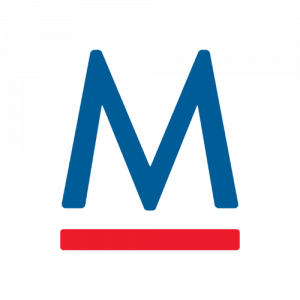MAVENIR JOINS XRAN FOUNDATION
The xRAN Foundation, a consortium dedicated to promoting a software-based, extensible Radio Access Network (xRAN) and to standardizing critical elements of the xRAN architecture, announced that Mavenir became a member
BARCELONA, SPAIN – February 27, 2017: The xRAN Foundation, a consortium dedicated to promoting a software-based, extensible Radio Access Network (xRAN) and to standardizing critical elements of the xRAN architecture, today announced that Verizon, a global leader of innovative mobile communications, technology and infrastructure and Ranzure, a provider of flexible, virtualized, cloud-based 4G/5G RAN solutions, has joined the xRAN Foundation.
In addition to these key new members, the xRAN Foundation has announced a collaboration with M-CORD, the open-source project reinventing network access to bring data center economics and cloud agility to Communications Service Providers (CSPs) central offices.
“A network architecture that provides a robust, interactive abstraction layer between applications and RAN infrastructure fits very well with our vision and goals. We believe this approach creates opportunities to increase the efficiency of our network and improve the quality of experience for our subscribers,” said Adam Koeppe, Vice President, Network Technology Planning at Verizon. “The xRAN Foundation has demonstrated the feasibility of a decoupled approach. The combination of standardized north-bound and south-bound interfaces allows the development of applications that can intelligently interact with the RAN infrastructure in a way that has never been possible before. We are excited to join the xRAN Foundation and plan to actively evaluate solutions that support xRAN interfaces and architecture.”
“For efficient delivery of next-generation mobile services, such as AR, IoT, and industrial robotics, a new more flexible software-based and hardware-independent RAN architecture is required. The xRAN approach will offer us real-time programmability and control of our RAN infrastructure to dynamically adapt to our customer’s needs,” said Bruno Jacobfeuerborn, CTO, Deutsche Telekom. “We are excited to see xRAN and CORD Project join forces to drive the development of this approach.”
Formally formed in October of 2016 by AT&T, Deutsche Telekom, SK Telecom, Intel Corporation, Texas Instruments, Radisys, Altran and Stanford University, the XRAN Foundation is a consortium dedicated to promoting a software-based, extensible Radio Access Network (xRAN) and to standardizing critical elements of the xRAN architecture. The xRAN architecture transforms today’s static, highly-proprietary RAN infrastructure into an extensible, software-based service delivery platform capable of rapidly responding to changing user, application and business needs.
The xRAN Foundation is holding a panel discussion event at Mobile World Congress 2017 in Barcelona on Tuesday, February 28th at noon on the Deutsche Telekom main presentation stage in Hall 3. The event will include an introductory presentation by Deutsche Telekom CTO, Bruno Jacobfeuerborn, followed by a panel discussion moderated by Petr Ledl, Head of Deutsche Telekom 5G: Haus. The panel includes Dr. Sachi Katti, Stanford University, Dr. Kim Larsen, Technology Economics & Transformation (TET) & AI Technology Architecture & Innovation (TAI) Group Technology at Deutsche Telekom, Gordon Mansfield, Vice President RAN & Device Design at AT&T, and Caroline Chan, VP and GM, 5G Infrastructure Division, Network Platform Group, at Intel. A multivendor demonstration of the xRAN controller, featuring the Intel + Radisys and the Texas Instruments + Aricent reference platforms, will be hosted during Mobile World Congress.
About XRAN Foundation
The xRAN Foundation was formed to develop, standardize and promote an open alternative to the traditionally closed, hardware-based RAN architecture. xRAN fundamentally advances RAN architecture in three areas – decouples the RAN control plane from the user plane, builds a modular eNB software stack that operates on common-off-the-shelf (COTS) hardware and publishes open north- and south-bound interfaces to the industry.



